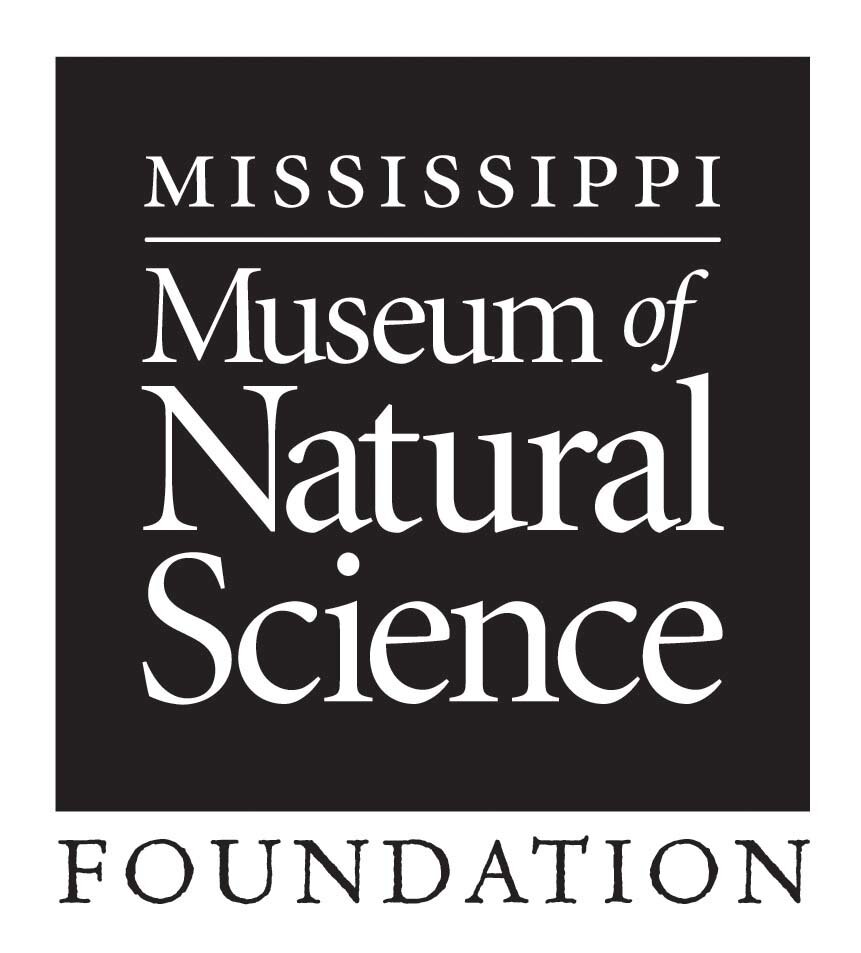Aaron Holbrook, Research Coordinator
Aaron is an excellent manager of the museum’s research staff. His job perfectly matches his career goals of restoring and maintaining species diversity for the health of our ecosystem and for the enjoyment of future generations.
Read on to get to know Aaron better.
HOW LONG HAVE YOU WORKED FOR THE MUSEUM?
I started working in aquariums at the museum in July of 2018 and moved to research in July of 2019.
WHAT’S YOUR WORKDAY LIKE?
Most of my day is spent administering and coordinating statewide specialized conservation research, management, and environmental projects/programs. This includes reviewing and approving research projects, budgeting, invoicing, and reporting our progress and results. I also assist with field work, museum events, and exhibit changes.
ANY FUNNY WORK STORIES?
One of my first wildlife jobs was as a summer research technician in Indiana while I was working on my Bachelor’s degree. My job was monitoring the spread of the invasive gypsy moth and this was done by installing cardboard glue traps that had pheromone strips on the inside as bait.
For the surveys to be thorough, we had to install the traps at predetermined waypoints throughout the state. The only valid excuse for not placing the traps was if it was in a body of water or if a landowner refused installation.
One day, I pulled up to the gate of a country club and asked via the callbox if it was ok to install a trap on their property. The man had no issue with it, told me to meet him at the camp store, and buzzed me in.
Oddly, I pulled in and saw no sign of a golf course, only a bunch of camper trailers, but I kept driving. Once to the parking lot, I turned off the truck, filled out my datasheet, and looked up at the pool directly in front of me.
I had driven into a nudist camp. After processing the situation for minute, I exited the truck, met with the man in the camp store (who was wearing shorts), and proceeded to install my trap as required!
Aaron Holbrook (back row, 2nd from right) pictured with MDWFP Mississippi Museum of Natural Science staff
PERSONAL BACKGROUND
I grew up in Brown County, Indiana. Nobody from Brown County says what town they are from because nobody knows where that town is (e.g. Story, Bean Blossom, Gnaw Bone, Pikes Peak).
I received my Bachelor’s degree from Ball State University in 2000 and my Master’s from the University of Southern Mississippi in 2015.
After working several seasonal positions with the Indiana Department of Natural Resources, I started working with their Wildlife Diversity Program (non-game species) in 2001 and I was hooked. I had the privilege of working with a variety of species including bobcats, eagles, osprey, peregrine falcons, barn owls, and hellbenders. In 2007, I was hired by The Nature Conservancy at Camp Shelby, MS to conduct biological surveys focusing primarily on gopher tortoises and black pinesnakes.
Then, in 2018 I was hired on as an Aquarist at MDWFP’s Mississippi Museum of Natural Science where I fed, maintained, and collected specimens for our aquarium exhibits.
WHY DID YOU CHOOSE THIS CAREER?
I grew up in the time before internet and cell phones (my family’s place in Indiana still has no cell coverage) and we picked up four channels on our television, so inside life had little to offer.
Luckily, I had access to fishing ponds and forests to hike around as about half of the county consists of Hoosier National Forest, Yellowwood State Forest, and Brown County State Park (Indiana’s largest park).
Fishing, hunting, plant identification, and bird watching were my primary sources of entertainment and a great way to clear my head, slow down, and feel connected.
I chose a career in conservation biology because nothing is more rewarding than restoring and maintaining species diversity for the health of our ecosystem and for the enjoyment of future generations.
HOW DOES YOUR JOB CONTRIBUTE TO CONSERVATION?
My current position is primarily on the paperwork side of the conservation equation. I manage the research staff and make sure they have everything they need to complete their research objectives.
I receive research proposals and package them for federal assistance grants. Once a project receives funding, I monitor it to make sure that project objectives are being completed, there are no issues with funding, and reporting deadlines are being met.
ANY ADVICE FOR A STUDENT INTERESTED IN A BIOLOGY OR MUSEUM CAREER?
Start volunteering or working summer positions while working on your Bachelor’s degree. This allows you to determine your desired path, network with state or federal employees, and make an impression with your work ethic.
Field work often involves working in inclement weather, hiking harsh terrain, getting filthy, and dealing with critters and plants that can inflict harm. If you can get through a Mississippi summer of field work and still want more, that will make an impression.





